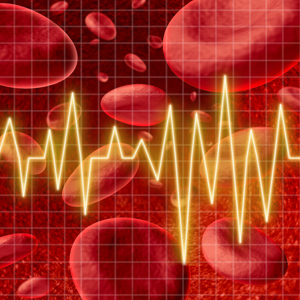
Scientists experimenting with rats have found that deactivating certain nerves in the neck can effectively treat high blood pressure, a discovery that could be an advance in tackling one of the world's biggest silent killers.
Researchers at Britain's Bristol University found that in rats with high blood pressure, when they removed nerve links between the brain and the carotid body – a nodule about the size of a grain of rice on the side of each carotid artery – the animals' blood pressure fell and remained low.
The researchers' results, published in the journal Nature Communications on Tuesday, have already led the team to conduct a small human trial of the technique, with results expected at the end of this year.
Silent killer
Hypertension, or high blood pressure, is referred to by the World Health Organisation as one of the world's biggest silent killers because most people who have it can't feel or see it.
It affects around one in three people worldwide and can cause stroke, heart attacks and kidney failure.
After diagnosis, treatment of high blood pressure needs to be lifelong and many patients are able to manage their condition with anti-hypertension drugs. But experts say that for around 1 in 50, medication does not help.
Julian Paton, who led this latest study at Bristol's school of physiology and pharmacology, said while scientists already knew of a link between the carotid organs and hypertension, until now "they had absolutely no idea that they contributed so massively to the generation of high blood pressure".
Tim Chico, as consultant cardiologist at the University of Sheffield who was not directly involved in the research, described the technique as "exciting and innovative" but cautioned that more work was needed to assess its effectiveness and safety before it could be considered for use in patients.
Normally, Paton explained, the carotid body acts to regulate the amount of oxygen and carbon dioxide in the blood.
Swift reduction
It is stimulated when oxygen levels fall in the blood – such as when someone is holding their breath. This then causes a dramatic increase in breathing and blood pressure until blood oxygen levels are restored.
Having established that this response comes about through a nerve connection between the carotid body and the brain, Paton's team decided to block the nerve endings in the neck and found that it swiftly brought their blood pressure down.
Jeremy Pearson, associate medical director at the British Heart Foundation, which part-funded this latest research, said all eyes are now on the human trial aiming to find out whether the treatment might work in people with high blood pressure who don't get better with current drugs.
Tony Heagerty, a professor of medicine at Manchester University who was not involved in the study, said it was an interesting development which could "potentially avoid the use of drugs which have to be taken on a daily basis for many years".
(Picture: Blood-Pressure from Shutterstock)




 Publications
Publications
 Partners
Partners















